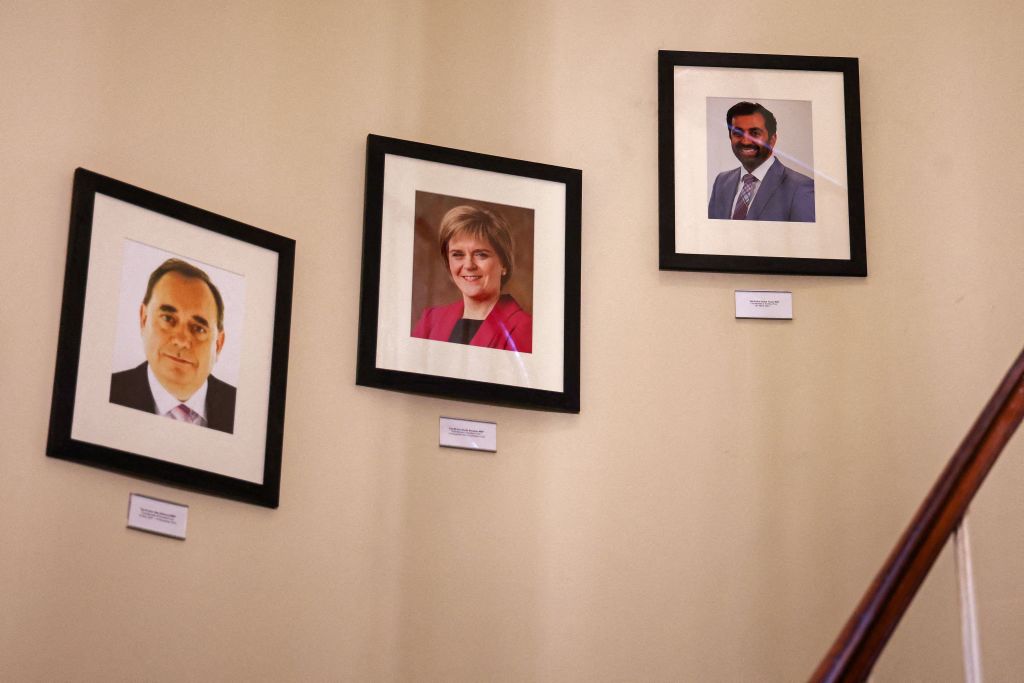Angus MacNeil’s attempt to hold the SNP to ransom on the matter of independence has played out both predictably and rather entertainingly. After the SNP MP was suspended for a week over an unseemly public spat with Chief Whip Brendan O’Hara, MacNeil announced he would not consider seeking readmission to SNP ranks until October. Once the party’s autumn conference has taken place, MacNeil said that he will then decide whether the party has, to his satisfaction, redoubled its efforts to achieve independence.
MacNeil has taken a hostage. The only problem is that the hostage is himself — and party leader Humza Yousaf has no desire to pay the ransom. A vocal critic of the party’s leadership for years, MacNeil could send bits of himself in Jiffy bags to SNP HQ for weeks and Yousaf would remain unmoved. And anyway, his plan has already backfired. Instead of offering up assurances about the party’s dedication to the independence cause, the SNP revealed on Friday that the MP for Na h-Eileanan an Iar (the Western Isles) has been suspended from the party for refusing to rejoin the party’s Westminster group.
Salmond, the architect of the solid gradualist approach that took the SNP from the fringes of Scottish politics and into power now sings the song of the fundamentalist.
In most cases, one would see this as a straightforward case of an impatient nationalist martyring himself — though perhaps MacNeil genuinely thought the threat that he would withhold his talents from the SNP was a grave one. But has anything been achieved by this display of petulance?
What remains the case is that there is a small but vocal faction in the Scottish nationalist movement that cannot accept there is no quick and easy way to independence. These activists believe that there must be ways around the law that keeps the power to hold referendums with the UK government. They believe that the current SNP leadership simply hasn’t tried hard enough to win the right to hold a second referendum.
And the idea that the SNP — which under a past leader did actually win the right to hold an independence referendum — has subsequently failed the nationalist movement is enthusiastically propagated by its former leader Alex Salmond. Salmond, the architect of the solid gradualist approach that took the SNP from the fringes of Scottish politics and into power now sings the song of the fundamentalist, demanding some sort of action — now.
In the analysis of Salmond’s behaviour, two schools of thought exist. His supporters believe he is sincere in his commitment to radical action. They accept that the once-gradualist politician is now a firebrand fundie. (This would be like Tony Blair announcing his support for the policies of Jeremy Corbyn, to put things into perspective.) Meanwhile, others reckon that Salmond’s position is all about making life difficult for the SNP.
MacNeil’s letter announcing his decision not to seek readmission to the SNP’s Westminster group was brutal in its assessment of the party leadership’s progress on independence, denouncing it as ‘utterly clueless about how to pursue independence’. But while MacNeil went heavy on problems, he failed to put forward any solutions of his own. His demand that the SNP should start pursuing independence rests on us accepting that the party is not already doing so.
Yet it’s abundantly clear that the SNP has done everything in its power to win the right to hold another referendum on independence. It’s also true that the party has often acted safe in the knowledge that it would not win the argument because, behind all the bluff and bluster, the numbers still stack up in favour of the Unionist side of the constitutional argument.
Privately, Humza Yousaf is said to be entirely clear that the only way he’ll be able to deliver a second referendum is to raise support for independence in the polls into a significant, steady lead. At such a point, he believes, it would be politically impossible for the UK government to deny the nationalists a second referendum. The First Minister has, I think, got that right. The problem is that he’s been deliberately muddying his own message, addressing his supporters with boosterish rhetoric about how close they are to achieving their prize while expressing different views behind closed doors.
The truth is that, when it comes to independence, the SNP is trapped by two realities — it has no power to run a referendum and there is no majority for breaking up the UK. Humza Yousaf’s critics may not like this but, as Angus MacNeil’s letter demonstrated, they don’t have a better plan.







Comments